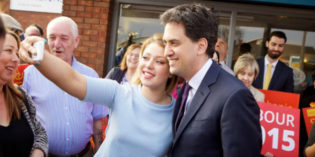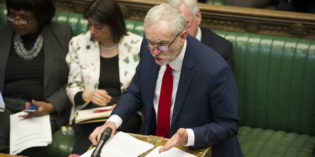Informing and engaging citizens

Hidden dragon: why is Wales ignored in London and inadequately reported at home?
A healthy democracy needs mechanisms that enable citizens to understand the political process and engage in the functioning of politics. But achieving such an understanding is proving a major problem for Wales. Craig Johnson reflects on the broader problems caused by the inadequate reporting of Welsh politics – not just in the country itself, but […]

New Labour and after: the toxic consequences of cynical party management
The New Labour years saw sweeping cultural change designed to replace the traditional internal Labour party democracy with a new organisational culture. Its effects are still felt today. Emmanuelle Avril explains how the struggles in today’s Labour have their roots in Blair’s brand of party management and Labour’s continuing (dys)function as an organisation. Ed Miliband campaigns in the West Midlands in 2015. Photo: […]

Letting the sun shine in – for a while: why (most) US presidents embrace openness
Most US politicians with ambitions to shake up the status quo say they want more openness in government – though many of them go off the idea after they acquire power. Donald Trump, however, is not interested in either open government or the usual nods to transparency that presidential candidates offer. But as he is […]

If you believe Brexit is a mistake, you have a democratic duty to oppose it
Is there a duty to implement the EU referendum result? Not if you believe it to be a profound mistake, argues Albert Weale. We cannot sensibly and intelligibly use the language of ‘the will of the people’ in respect of the referendum result. It is not simply a device for the registering of the preferences of […]

No need for basic income: five policies to tackle the loss of jobs to technology
Not all the jobs lost to new technology are likely to be replaced. A universal basic income has been touted as a solution to the problem of under-employment – but, argues Henning Meyer, it would lead to even greater inequality. He suggests five alternative policies that could help tackle the problem of technological unemployment. Similar […]

Lyin’, crooked, loser: how negative affective language influences people’s votes
With his frequent characterisations of his opponents as “lyin’” or “crooked”, Donald Trump’s use of language during his 2016 presidential election campaign was a departure from previous contests. In new research, Stephen M. Utych examines the effects of this sort of emotional, negative language on political decision-making. Through experimental studies, he finds that when such […]

The trouble with Jeremy Corbyn: five tests the Labour leader is failing
Much of the Parliamentary Labour Party want to replace Jeremy Corbyn, and his popularity among the general public is low. Yet he was resoundingly re-elected by party members last autumn. Patrick Diamond assesses the Labour leader’s performance as an opposition leader according to five criteria, and concludes the risk of a Labour schism between ‘principles’ and […]

Never mind NICs: gender budgeting reveals the Spring Budget’s true impact on poorer women
Last week’s Spring Budget failed to reverse a series of cuts that effectively take away money from poorer women and give it to better-off men. The Treasury has a duty to pay due regard to the impact of its policies on women, but it is not doing so. Mary-Ann Stephenson and her colleagues at the […]




 Democratic Audit's core funding is provided by the Joseph Rowntree Charitable Trust. Additional funding is provided by the London School of Economics.
Democratic Audit's core funding is provided by the Joseph Rowntree Charitable Trust. Additional funding is provided by the London School of Economics.